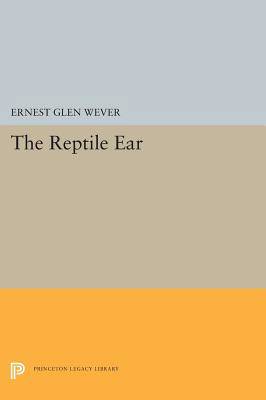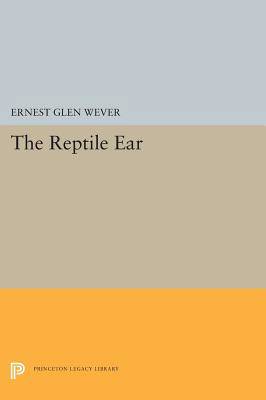
- Retrait gratuit dans votre magasin Club
- 7.000.000 titres dans notre catalogue
- Payer en toute sécurité
- Toujours un magasin près de chez vous
- Retrait gratuit dans votre magasin Club
- 7.000.0000 titres dans notre catalogue
- Payer en toute sécurité
- Toujours un magasin près de chez vous
Description
In this definitive work, Ernest Glen Wever establishes the evolutionary importance of the reptile ear as the origin of the higher type of auditory apparatus shared by man and the mammals. Tracing the development of the auditory receptor in the living reptiles, he examines the use of a variety of mechanisms and principles of action by that receptor. While some of the material in this book has appeared previously in journal articles, most of it is presented here for the first time.
Basing this study on his twenty years of research at Princeton's Auditory Research Laboratories, Professor Wever treats in anatomical and functional detail the auditory mechanism in about 250 species and subspecies of reptiles. The anatomical treatment rests on dissections and histological examinations of the ears in serial section, and portrays the relevant features in drawings that represent particular views of reconstructions. The author evaluates the performance of thesse ears electrophysiologically, in terms of the electrical potentials of the cochlea, paying particular attention to problems of the transmission of vibrations inward to the cochlea and the actions there in stimulating the sensory cells.
Professor Wever finds that the cochlea emerged independently from the non-auditory labyrinth in three different vertebrate groups: fishes, amphibians, and reptiles. It was among the reptiles, however, that the vertebrate ear took on a more advanced configuration from which it further evolved along separate lineages in the birds and mammals.
Ernest Glen Wever is Eugene Higgins Professor of Psychology Emeritus at Princeton University.
Spécifications
Parties prenantes
- Auteur(s) :
- Editeur:
Contenu
- Nombre de pages :
- 1040
- Langue:
- Anglais
- Collection :
- Tome:
- n° 5347
Caractéristiques
- EAN:
- 9780691656250
- Date de parution :
- 29-01-19
- Format:
- Livre relié
- Format numérique:
- Genaaid
- Dimensions :
- 178 mm x 254 mm
- Poids :
- 1991 g

Les avis
Nous publions uniquement les avis qui respectent les conditions requises. Consultez nos conditions pour les avis.






